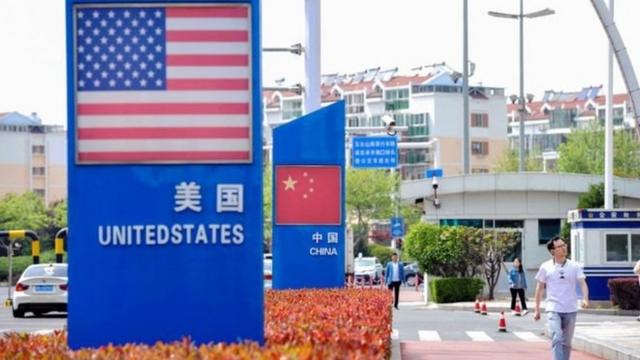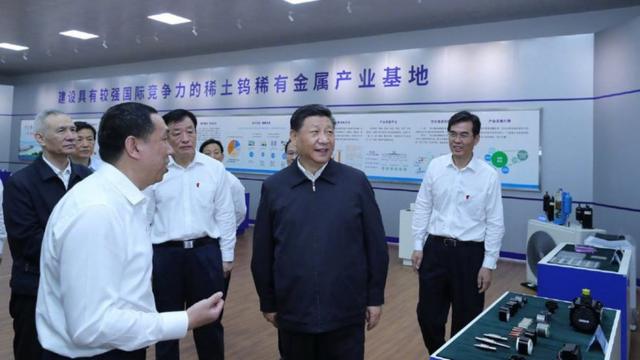風蕭蕭_Frank
以文會友尼爾·弗格森《中美國》的終結
https://www.cigionline.org/articles/end-chimerica/
在一篇相當“擁擠”的小文章中(意思是文章中流淌著許多潮流),哈佛大學、牛津大學和胡佛研究所的尼爾·弗格森(Niall Ferguson)宣布“中美國”結束了。 正如尼爾在英國新刊《Standpoint》上發表的文章中指出的那樣,日益嚴重的金融危機使這一全球增長最重要的驅動力麵臨風險。 中美國占GDP的三分之一,過去6年占全球增長的50%,現在正受到華爾街信貸和流動性危機的威脅。
尼爾開始宣布“中美卡”的消亡,他認為這個術語是由他自己和德國政治學家莫裏茨·舒拉裏克在中國四川重慶(可以說是世界上最大的城市)的一次旅行中誕生的,講述了一個巨大的基礎設施建設的故事。 重慶的故事大概是為了凸顯中國政府公共支出的持續流動(即使不是泛濫),尤其是在中國西部地區。
重慶的描述提醒人們,中國的公共融資是經濟增長的關鍵組成部分,現在可能是美國出口貿易的替代品和替代品。 這也是對中國及其經濟規劃者對中國環境關注不夠的警告。 尼爾比較了公共基礎設施,這一計劃背後的動機是斯大林主義和蘇聯工業化最嚴重的過度行為及其所有後果。
尼爾的文章記錄了中美國滅亡的地緣政治後果,更直接地記錄了美國的金融崩潰。 他首先指出,高負債和緩慢增長是儲備貨幣的敵人。 他表示,金融動蕩很可能需要數年的時間來應對,從而導致美國經濟持續緩慢增長。 如果有替代方案——歐元——美國可能會付出比增長緩慢更大的代價。
弗格森認為,隨著美國經濟增長放緩,而中國經濟增長可能持續加快,第二個地緣政治後果將是美國和中國之間更快地趨同,而中國將在 2040 年縮小 GDP 差距,而不是像高盛在 2003 年報告中預測的那樣 ,但是 2027 年。
進一步的地緣政治後果是,中國以及可能還有其他國家在全球(非洲、拉丁美洲和亞洲)的存在可能不斷增加,以尋求安全的商品來源。 隨著對大宗商品(當然是石油)以及礦產和食品的需求不斷增長,中國可能會成為一個新的大國。
尼爾讓讀者思考美中關係的未來是否會受到大國競爭的困擾。 也許吧,但也許《中美國》並不是尼爾可愛的結局那樣的“嵌合體”。 事實上,中國和美國可能並不像尼爾希望我們相信的那樣與美國脫鉤。 兩者的共生緊密耦合關係可能比本文中所暗示的要緊密得多。 尼爾可能在中國的大國地位問題上“操之過急”。
本文/多媒體中表達的觀點是作者的觀點,並不一定反映 CIGI 或其董事會的觀點。
Niall Ferguson The End of ‘Chimerica’
https://www.cigionline.org/articles/end-chimerica/
In a rather ‘crowded’ little piece (meaning that there are a number of currents flowing through the article), Niall Ferguson of Harvard, Oxford and Hoover Institution fame, has declared ‘Chimerica’ at an end. As Niall points out in his article in the new journal Standpoint out of the UK, the growing financial crisis puts this most important driver of global growth at risk. Chimerica which has represented one-third of GDP and over the past 6 years 50% of global growth, is threatened by the credit and liquidity crisis of Wall Street.
Niall begins his declaration of Chimerca’s demise, a term he suggests was birthed by himself and German political scientist, Moritz Schularick with a trip through Chongqing Sichuan, China - arguably the largest city in the world - with a tale of enormous infrastructure building. This tale of Chongqing presumably is to highlight the Chinese government’s continuing flow, if not flood, of public expenditure especially in China’s west.
The Chongqing description is a reminder that public financing in China is a key component of economic growth, and presumably now a substitute and alternative to American export trade. It is also a warning that China and its economic planners pay scant attention to China’s environment. Niall compares the public infrastructure and the motivation behind this palnning is the worst excesses of Stalinism and Soviet industrialization with all its consequences.
Niall’s article chronicles the geopolitical consequences of the demise of Chimerica and more directly the financial meltdown in the United States. First he points out that high indebtedness and slow growth is the enemy of a reserve currency. He suggests the financial turmoil may well require years of workout and consigning therefore the US to sustained slow growth. With the alternative available - the euro - the United States may pay a much greater penalty than just slow growth.
With slower US growth and presumably sustained greater Chinese growth, the second geopolitical consequence, according to Ferguson will be a more rapid convergence between the US and China with China closing the GDP gap not in 2040, as predicted by Goldman Sachs in its report in 2003, but 2027.
And a further geopolitical consequence is the likely growing presence in the globe - Africa, Latin America and Asia - of China, and possibly some others, in search of secure commodity sources. With the growing demand on commodities - for sure oil - but also minerals and foodstuff - China will be out there as a new Great power presumably.
Niall leaves the reader to wonder whether the future of US-China relations will be troubled by Great power rivalry. Maybe, but maybe Chimerica is not a ‘chimera’ as Niall so cutely ends. Indeed China and America may not be as decoupled from the United States as Niall would like us to believe. The symbiotic closely coupled relationship of the two may be much tighter than suggested in this article. Niall may be ‘jumping the gun’ on China’s Great power status.
The opinions expressed in this article/multimedia are those of the author(s) and do not necessarily reflect the views of CIGI or its Board of Directors.
從“中美國”到新冷戰:美國如何麵對中國“舉國體製”
蒙克 BBC中文
 美國應該如何對中國強硬,如何在競爭中戰勝中國成為美國輿論關注的話題
美國應該如何對中國強硬,如何在競爭中戰勝中國成為美國輿論關注的話題
美中貿易協議達成一波三折,雙方正進入曠日持久的經濟對抗。與此同時,美國應該如何對中國強硬,如何在競爭中戰勝中國成為美國輿論關注的話題。
今年9月在韓國首爾的辯論會上,中國著名經濟學者林毅夫教授與美國曆史學者尼爾·弗格森(Niall Ferguson)討論結束時打賭。林毅夫認為20年後,中國將超過美國,而弗格森則不同意中國經濟會超過美國。
不過弗格森在討論中承認,中國經曆了史無前例的迅速工業化和經濟增長,按照購買力評估,中國經濟已經超過了美國。但弗格森指出,中國取得經濟和科技成就的手段缺乏正當性,例如國家支持企業進行不公平競爭以及技術盜竊問題。
這大致反映出美國的專家和決策者對於中美競爭的討論,其中主要的話題就是中國能否超過美國,以及應該如何對付中國的問題。
“中美國”時代終結
美國學者說,描述中國和美國經濟共生關係的新詞“中美國”(Chimerica)已經不反映現實,新冷戰已經開始。
弗格森本周在《紐約時報》撰文,描述中國和美國經濟共生關係的新詞“中美共同體”(Chimerica)已經不反映現實,新冷戰已經開始。
目前中國對美國構成的挑戰具有舊冷戰時期美國的主要對手蘇聯不具備的特點,其中主要是經濟挑戰。蘇聯從來沒有像中國這樣顯示出強大的經濟活力和科技競爭力。
美國前國家安全局局長羅傑斯(Mike Rogers)最近在廣播節目中說,在冷戰中蘇聯的挑戰主要集中在政治,外交和軍事方麵,但是今天的中國對美國的挑戰除了表現在上述方麵以外,更主要的是經濟能力方麵的挑戰。他說,曆史上美國從來沒有遇到過在經濟能力上如此接近的競爭者。
美國媒體報道說,羅傑斯是美國政策圈最早對諸如華為和中興這類中國技術公司的國家安全威脅發出警告的人。他在2012年就同其他人一起撰寫過50頁的報告,指出這些中國公司與北京共產黨政府存在長期合作的關係,提醒美國情報界和國會關注華為和中興這類中國的科技巨頭。
“舉國體製”難複製
中國國家調動資源和力量的能力被說成“舉國體製”,占經濟主導地位的國企被認為是政府幹預經濟的主要手段。中國的國企和“舉國體製”一直成為美國的指責目標。
 中國領導人習近平5月在江西考察國家的戰略資源企業。占經濟主導地位的國企被認為是政府幹預經濟的主要手段
中國領導人習近平5月在江西考察國家的戰略資源企業。占經濟主導地位的國企被認為是政府幹預經濟的主要手段
羅傑斯在討論如何對付中國競爭的時候也強調了中國公司獲得國家支持的問題,即中央控製的投資,提供緩衝保障,這都是美國公司沒有的,這令中國取得對西方競爭者不平等的競爭優勢。
11月初中共中央全會通過的決議強調了中國體製在1949年後以及市場經濟改革後曆史上的主要作用。在官方決議中,“集中力量辦大事”被列為中國製度的優勢。官方媒體也提到在科技創新,掌握核心技術方麵,依靠舉國體製優勢的重要性。
中國把取得21世紀的技術製高點作為發展目標。羅傑斯認為,美國商界首先明白中國這個目標,然後才能努力同中國競爭。中國正在集中力量推動下一代的技術進步,諸如量子計算機,5G網絡,生物技術,納米技術和其他關鍵技術。
他認為中國的策略是,先在上述關鍵技術中取得進展,在全球推廣中國的技術標準,然後大力發展中國公司,對“過時”的西方公司取而代之。
 中國上海交通大學的量子通訊研究人員。中國正集中力量試圖在諸如量子計算機,5G網絡等新技術研究中取得領先地位
中國上海交通大學的量子通訊研究人員。中國正集中力量試圖在諸如量子計算機,5G網絡等新技術研究中取得領先地位
“新冷戰更冷,更長”
在美國這位前國家安全局局長看來,中國的許多戰術令美國難以應對,例如盜竊知識產權,政府補貼科技公司,把企業利益同政府研究相結合。他還提出如何對付中國的具體建議,即維護美國商業理念的同時又能戰勝中國競爭。
他認為,美國以其人之道,還治其人之身和中國競爭並非良策,加大美國政府對技術公司幹預在美國不會取得良好效果,“美國商業公司在政府支持下取得競爭者的知識產權和商業機密也不可行”。
不過,他認為美國仍然能大幅度改善公共行業同私營行業的合作關係。他認為,在過去冷戰時期的太空競賽就顯示了這種合作的力量,其中有政府和私營行業的精華。當時美國被認為落後於蘇聯,但是美國能利用政府和工業界的優勢,取得了“一些令人驚異的經濟優勢”。
盡管如此,羅傑斯認為把中美在貿易,盜版或安全方麵的對峙比作“冷戰”沒有益處,對中國複製試圖當初針對蘇聯的“遏製”戰略也不會奏效。
但尼爾·弗格森在《紐約時報》中撰文說,中國的挑戰比冷戰中蘇聯的挑戰更大,因此與中國的新冷戰會更冷,時間更長。他還說,在冷戰中西方有“北約”遏製蘇聯的擴張野心,但在新冷戰中還沒有建立類似組織遏製中國。




